On today's episode, we take a dive into the secret world of plants with natural dye expert Kathryn Davy.
I met Kathryn last spring while attending one of the workshops she was holding here in East London. I found the experience deeply fascinating and when Kathryn told me she was coming back to London for another workshop I jumped on the opportunity to invite her on the podcast. She arrived straight from the airport on her way from Dublin and we ended up spending the whole day together, which was such a treat.
Scroll all the way down for the recipes I prepared for Kathryn!
Catherine has over 14 years of experience in the world of natural dyes and paints. She first got into this world whilst raising her three daughters in Northern California, researching more sustainable and natural products for herself and her family.
In 2010, she started her own business, selling handcrafted textiles made from 100% organic and sustainable sources.
In 2014, she left California together with her daughters and returned back home to Ireland. In the following decade, she reinvented her business and devoted more and more time to teaching her art.
I think a lot of us are feeling a need, especially since the pandemic, to reconnect with nature and get our hands dirty and our eyes away from screens, whether picking up pottery classes or learning how to sew.
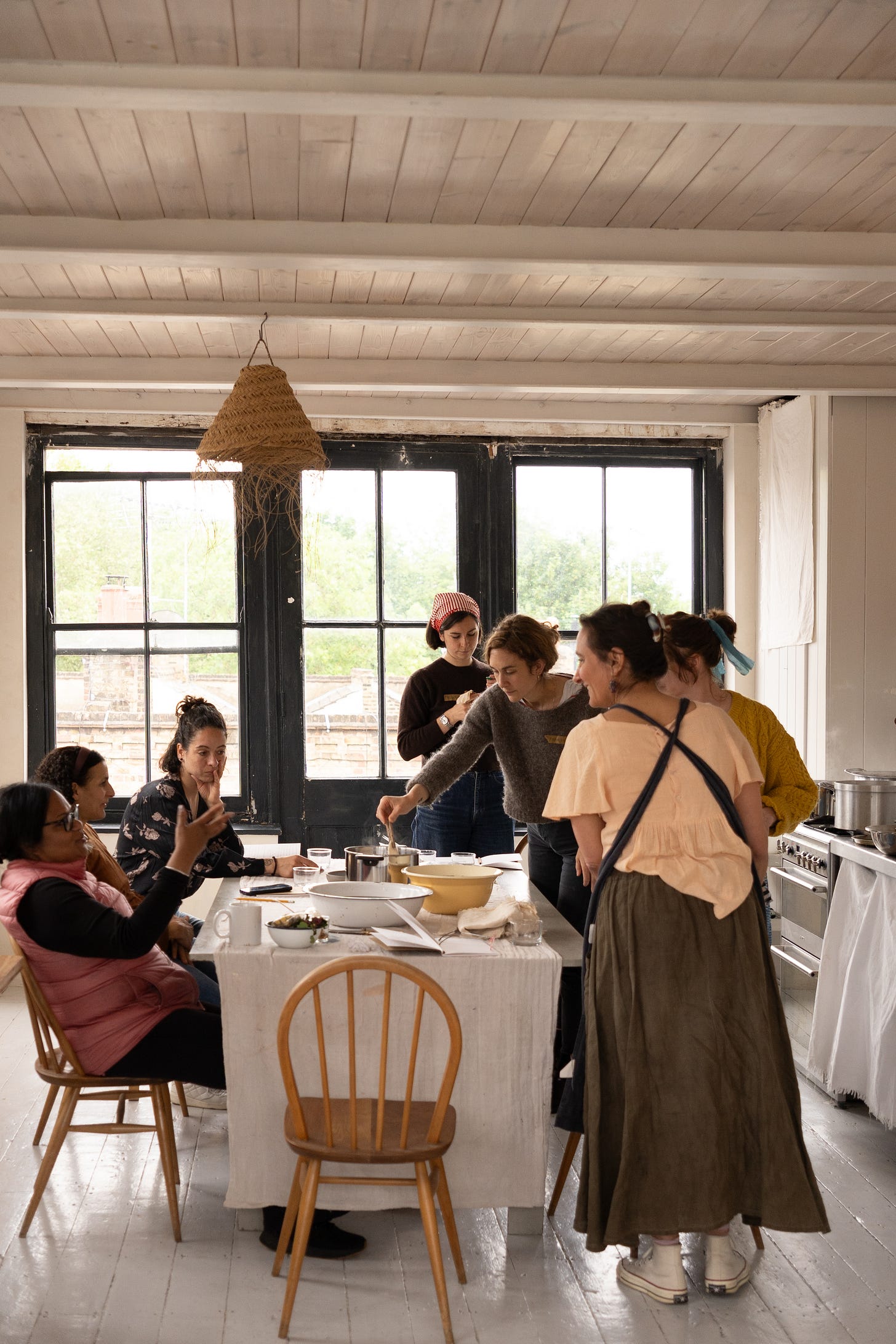
So this conversation is meant to be a little introduction to the beautiful world of natural dyes for anyone out there who wants to give it a go. If you're keen to go deeper after listening to this episode, Kathryn offers a variety of online courses and resources on her website, some of which she very generously gives for free. She also teaches workshops in person at different locations in Dublin and London and annual retreats in Greece – which, to be honest, sounds dreamy.
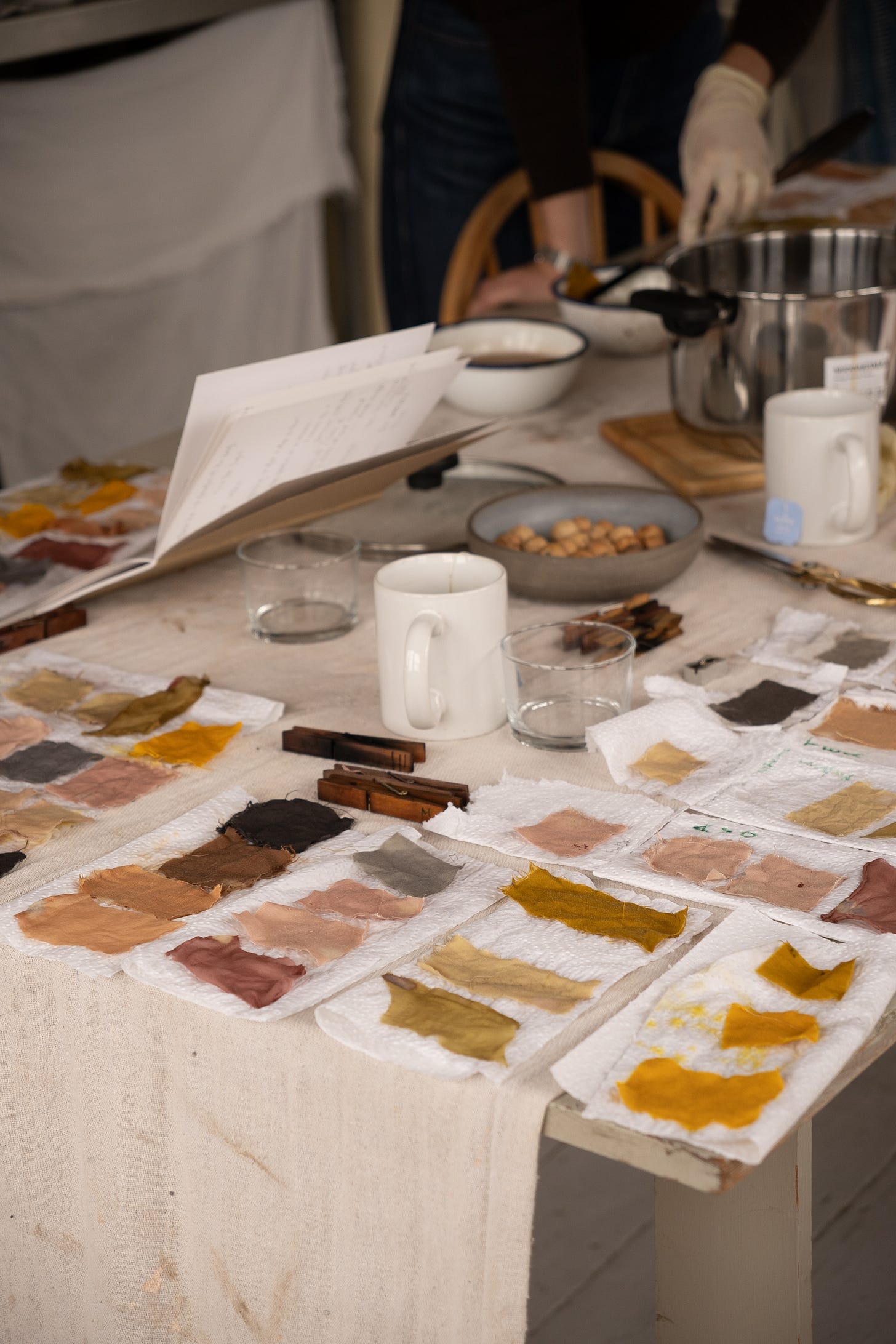
Useful links:
☞ Kathryn's London Workshops: Waitlist
☞ Creative Retreats & Accommodation At Mèlisses, Andros
☞ Kathryn’s Beginner Blog Posts & Natural Dye Resources
Use the code TVPST for 25% off all Kathryn’s courses and guides!
On the menu:
Roasted celeriac soup
Serves 4
Ingredients:
1 medium celeriac (about 600g), peeled and cut into cubes
1 large onion, roughly chopped
2 garlic cloves, peeled
2 tbsp olive oil
Salt and black pepper, to taste
1 tbsp fresh sage leaves, chopped (plus a few extra leaves for garnish)
750ml vegetable or chicken stock
125ml cream (or milk for a lighter version)
50g hazelnuts, roughly chopped and toasted
Optional: a drizzle of hazelnut oil or extra virgin olive oil, for finishing
Method:
Preheat your oven to 200°C.
On a baking sheet, toss the celeriac cubes, onion, and garlic with olive oil, salt, and pepper. Spread in a single layer and roast for 25–30 minutes, or until the celeriac is golden and tender.
In a large pot, add a little extra olive oil and sauté the chopped sage leaves over medium heat for about 1 minute, just until fragrant.
Add the roasted vegetables to the pot with the sage, then pour in the vegetable or chicken stock. Bring to a gentle boil, then reduce to a simmer for 10 minutes to let the flavours meld.
Using an immersion blender (or transferring to a blender in batches), blend the soup until smooth and creamy. Stir in the cream, and adjust the seasoning with more salt and pepper if needed.
In a dry skillet over medium heat, toast the chopped hazelnuts until golden brown, about 2–3 minutes. Use the same skillet to fry a few sage leaves for decoration.
Ladle the soup into bowls, and garnish with a sprinkle of toasted hazelnuts, a few fried sage leaves, and a drizzle of hazelnut oil or olive oil.
Blue Stilton, walnuts and thyme Scones
makes 10 mini sconces
Ingredients:
250g self-raising flour
1/2 tsp salt
1/4 tsp black pepper
80g cold unsalted butter, cubed or grated
100g Stilton blue cheese, crumbled
1–2 tsp fresh thyme leaves (or rosemary or chives)
120ml cold whole milk (add a splash more if needed)
1 large egg, beaten (for brushing)
Method:
Preheat your oven to 200°C. Line a baking sheet with parchment paper.
In a large mixing bowl, whisk together the flour, salt, and black pepper.
Add the cold butter cubes (or grated butter) to the flour mixture. Use a pastry cutter or your fingers to rub the butter into the flour until the mixture resembles coarse crumbs.
Gently fold in the crumbled blue cheese and the fresh thyme (or chives/rosemary) until evenly distributed.
Pour in the cold milk and stir until the dough just comes together. If it’s a bit dry, add an extra splash of milk, but be careful not to overwork the dough.
Turn the dough out onto a lightly floured surface and gently knead it a couple of times to bring it together, making sure you don’t overwork it. Pat the dough into a circle about a thumb thick.
Use a round cutter to cut the scones. Transfer the scones to the prepared baking sheet.
(Optional): For the flakiest results, chill the scones in the refrigerator for 15-20 minutes before baking.
Brush the tops of the scones with the beaten egg for a golden finish.
Bake in the preheated oven for 15-20 minutes, or until the scones are golden brown and firm to the touch.
Allow the scones to cool slightly on a wire rack before serving warm.
Spiced Honey Poached Pears with whipped Crème fraîche
Serves 4
Ingredients:
for the poached pears
4 ripe but firm pears (I used Williams), peeled and left whole with stems intact
750ml water
100g honey
1 cinnamon stick
2 star anise
4–5 whole cloves
for the whipped Crème fraîche
125ml Crème fraîche
lemon zest
2 tbsp honey (adjust to taste)
1 tbsp chopped roasted hazelnuts, to garnish
Method:
In a large saucepan, combine the water, honey, cinnamon stick, star anise and cloves. Bring the mixture to a gentle simmer over medium heat, stirring until the honey is dissolved.
Add the pears to the saucepan, making sure they are fully submerged. If needed, add a bit more water to cover them. Simmer gently for 20–30 minutes, or until the pears are tender but still hold their shape. Turn the pears occasionally to ensure even cooking.
Once the pears are tender, remove them from the poaching liquid and let them cool. For a more intense flavour, let them sit in the poaching liquid until serving time, even better if overnight.
In a medium mixing bowl, whip the crème fraîche with a whisk or hand mixer until it starts to thicken and become fluffy. It won’t double in volume as much as heavy cream, but it will become airy.
Gently fold in the honey and lemon zest until well combined. Taste and adjust sweetness as desired.
Spoon a dollop of whipped honey crème fraîche as a base, add the pears on top and sprinkle with the roasted hazelnuts.
This menu’s tea pairing:
Avantcha’s Blooming Moments Peach
White tea and marigold flower with jasmine & peach notes
If you enjoyed this episode, leave a comment – I’d love to hear from you!





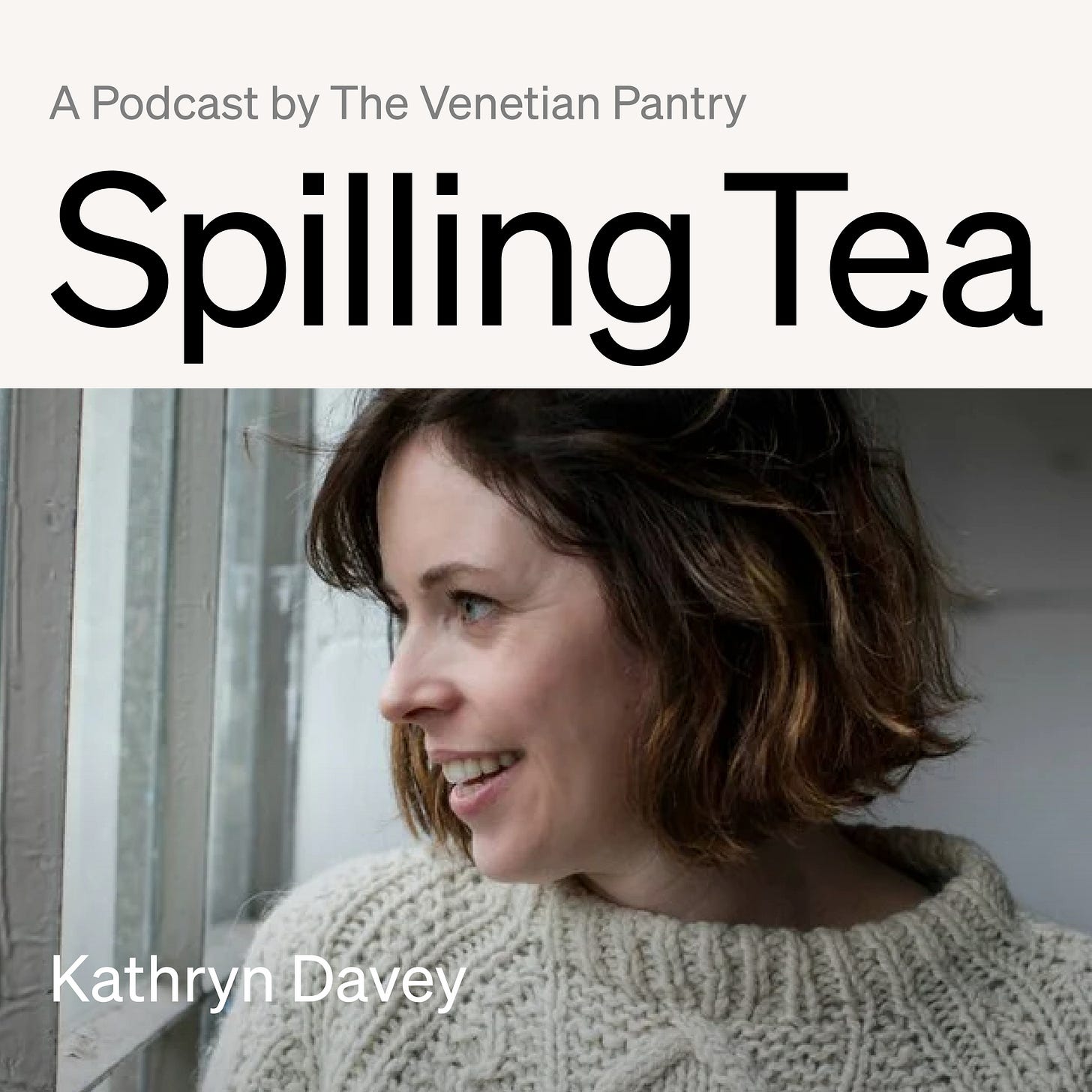
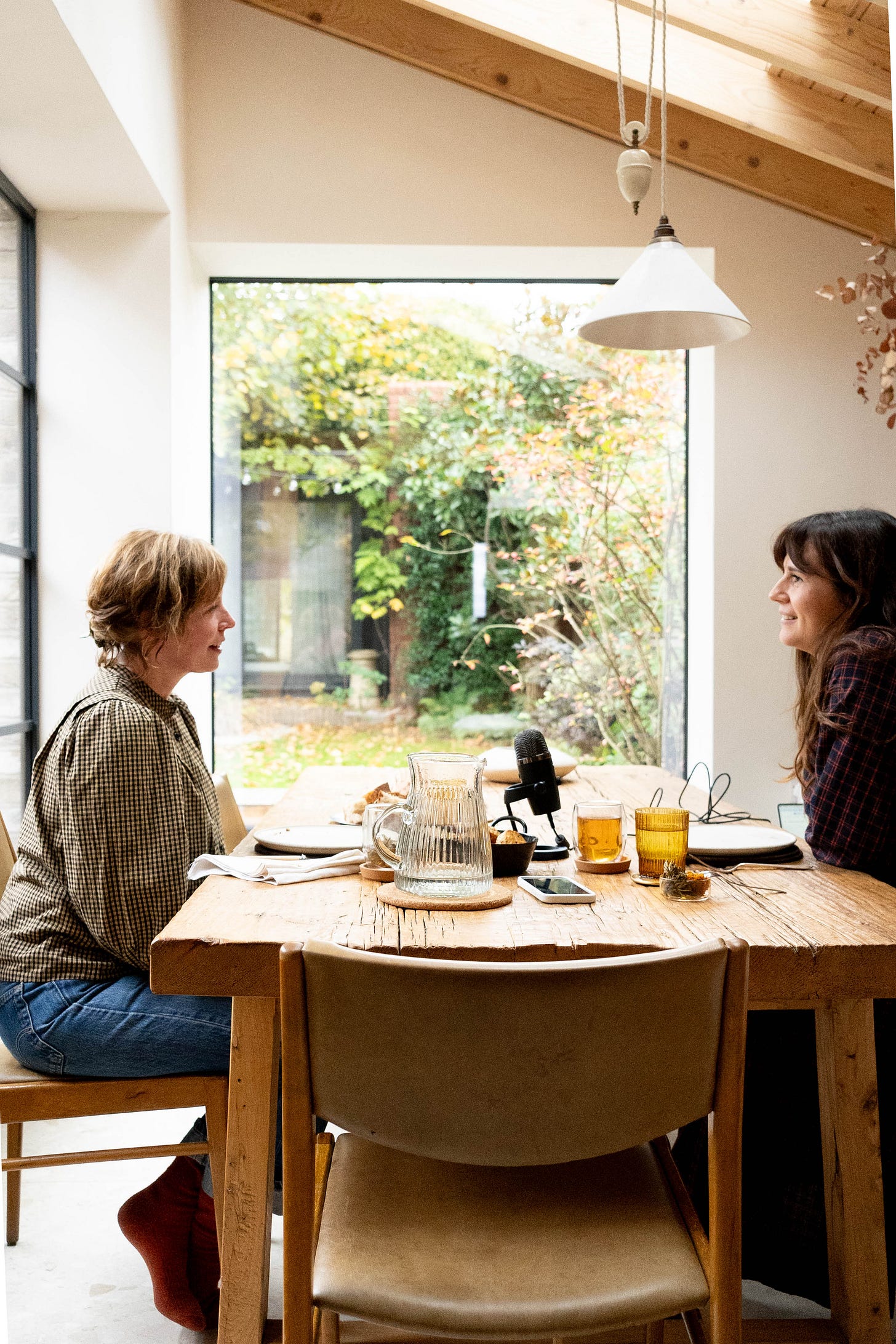

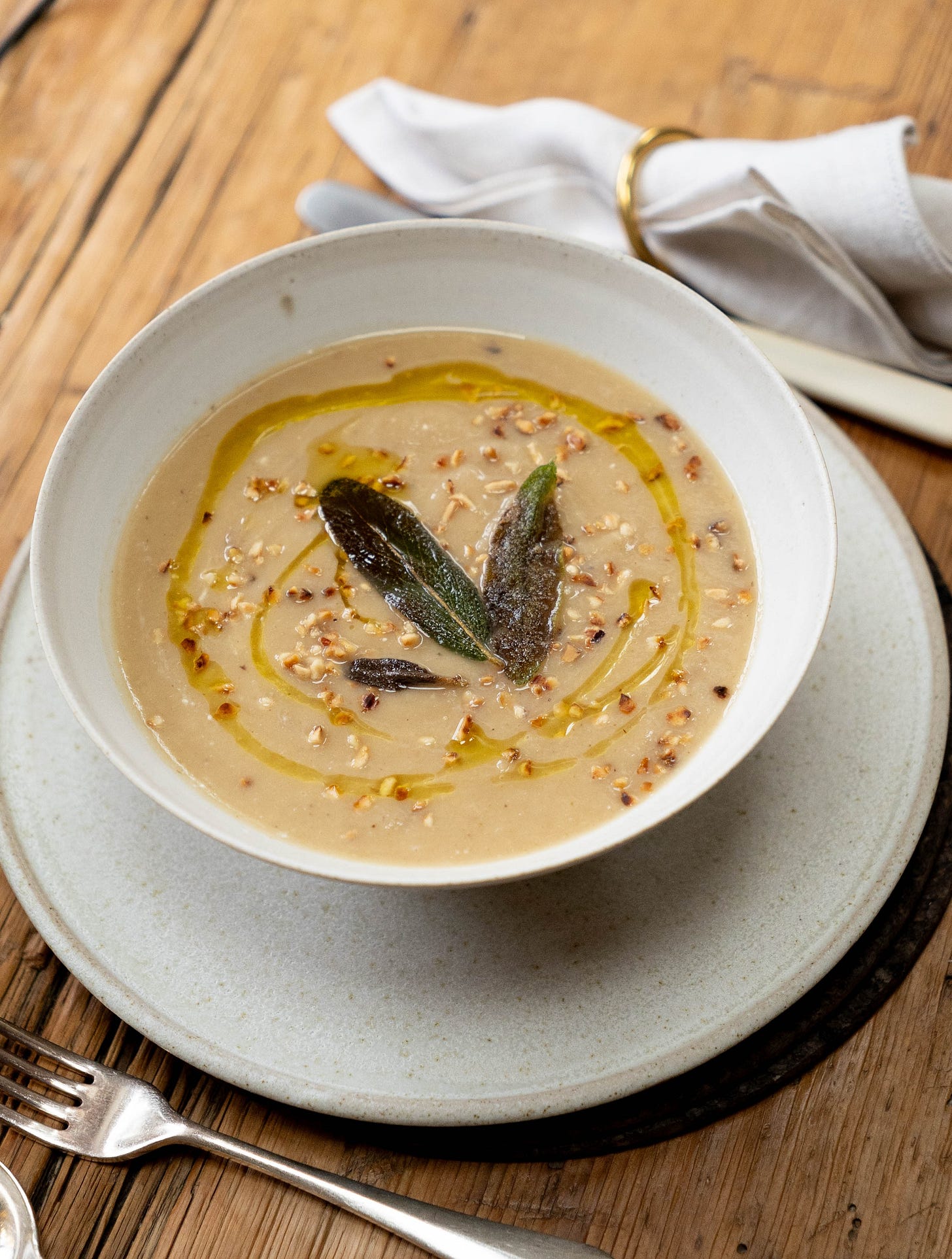
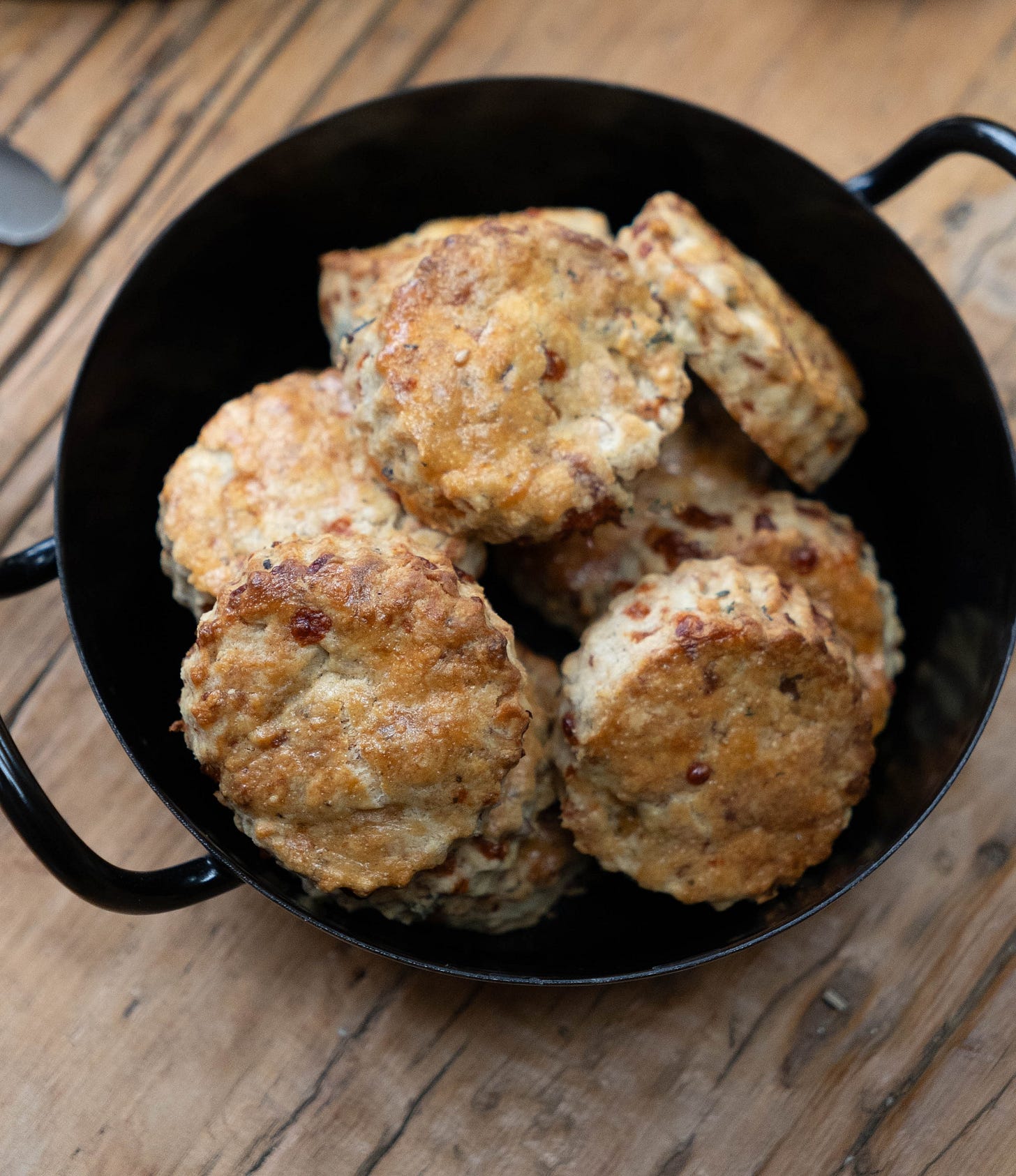
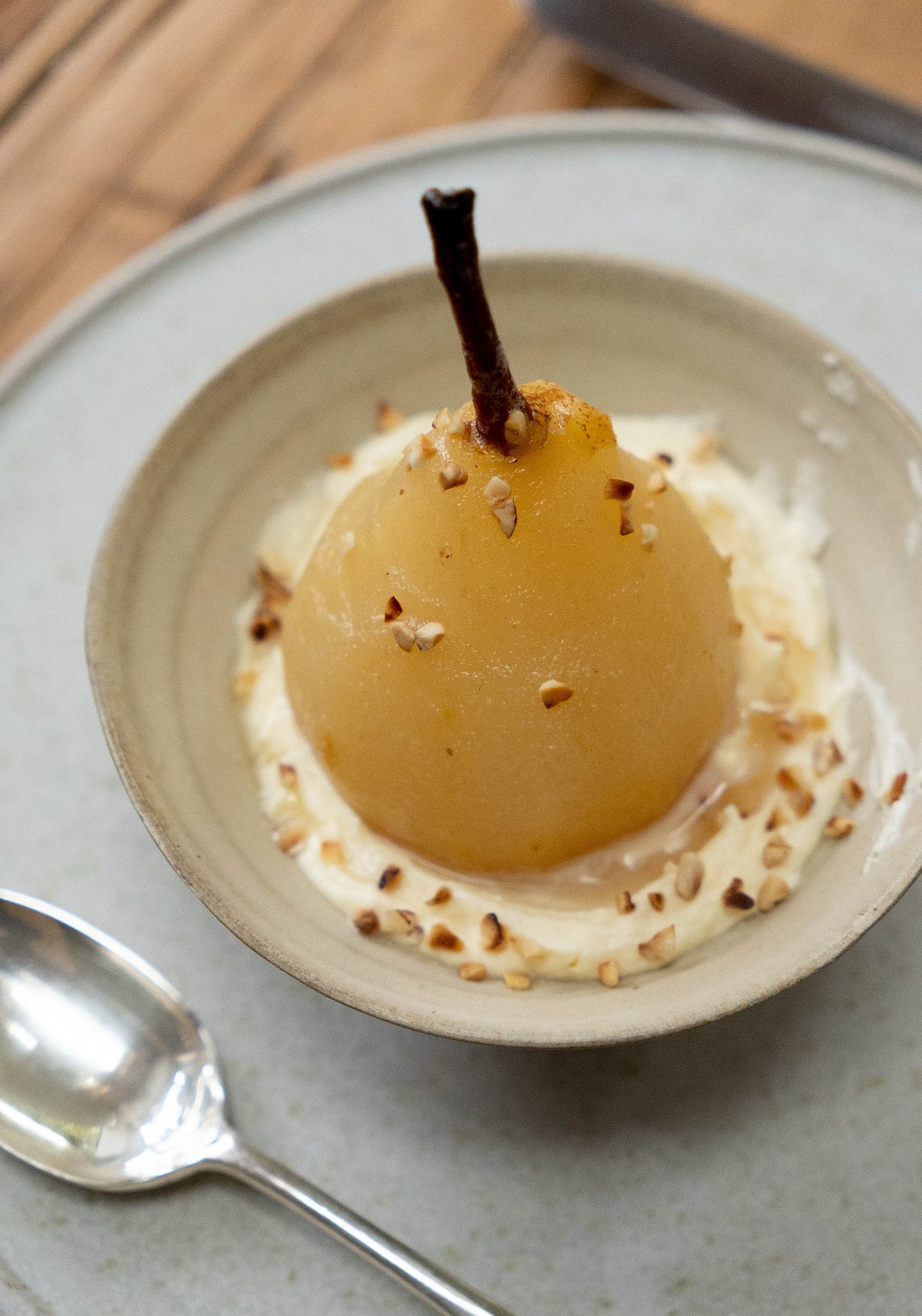
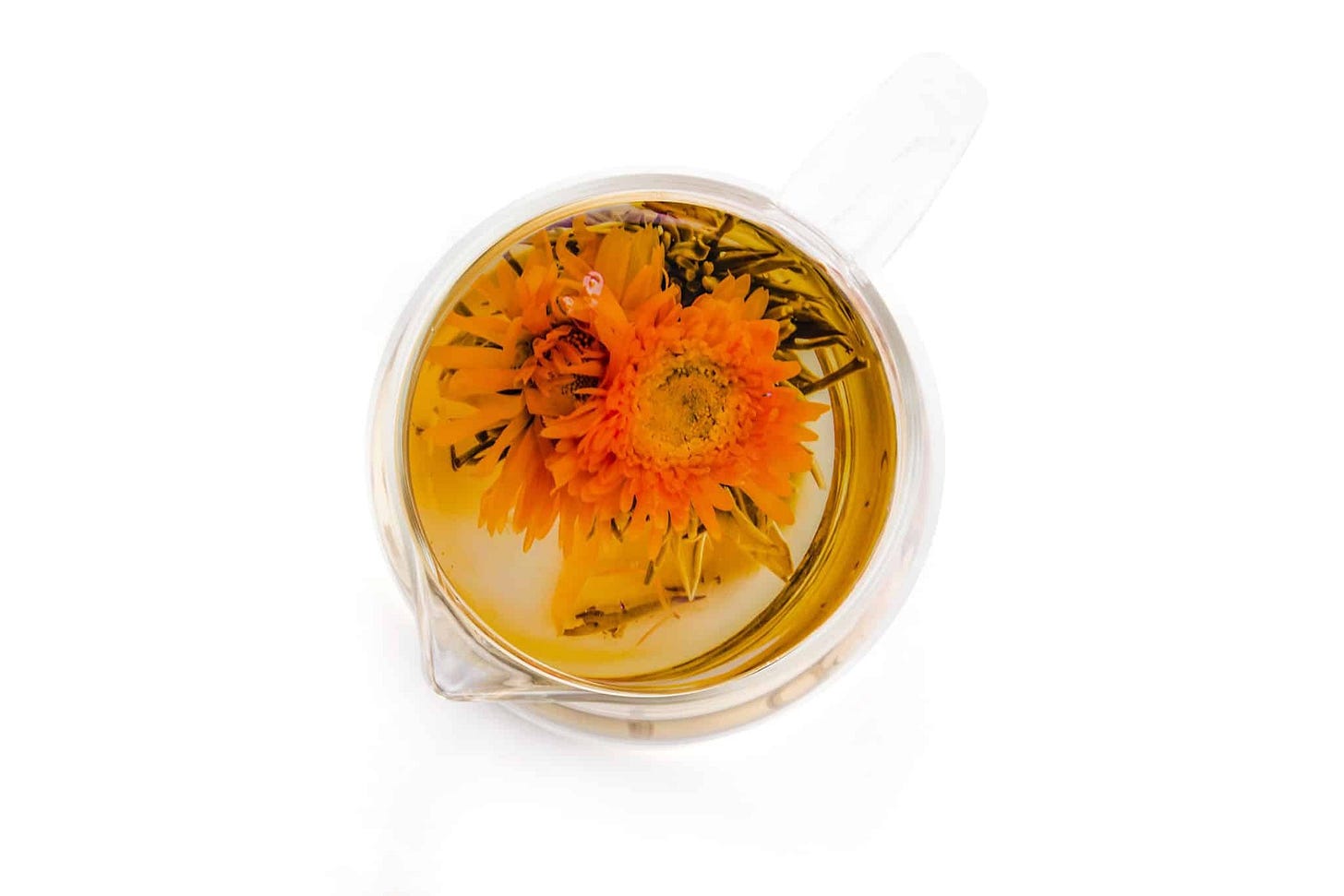









Share this post